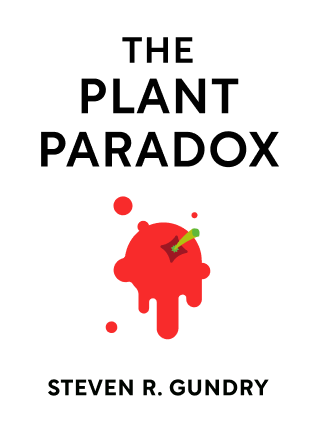

This article is an excerpt from the Shortform summary of "The Plant Paradox" by Steven R. Gundry. Shortform has the world's best summaries of books you should be reading.
Like this article? Sign up for a free trial here .
What is the gastrointestinal tract? What does the gastrointestinal track do, and how can the Plant Paradox diet help?
The gastrointestinal tract is a bodily system that includes the intestines. It is critical for digestive functions and ridding your body of waste.
Read more about the gastrointestinal tract and the gastrointestinal system functions.
What Is the Gastrointestinal Tract?
Think of the gastrointestinal tract as a tunnel under a river: When you drive through the tunnel, you’re not in the river, you’re just passing through it. Similarly, food that passes through your intestines is not in your body as much as it’s passing through it. That’s how the GI tract works.
Recall from chapter 1 that the intestinal wall is formed of tightly locked cells designed to prevent big molecules from passing through to the rest of your body. The microbes in the gastrointestinal system function to break down food into tiny molecules of amino acids, fatty acids, and sugar, which should be the only things that pass through the intestinal wall.
However, lectins and LPSs can breach the intestinal wall, prompting the immune system to attack. Additionally, regular use of Nonsteroidal Anti-Inflammatory Drugs (NSAIDs, e.g. Advil, Motrin, ibuprofen, Aleve, and aspirin) damages the protective mucus layer that lines the intestinal walls, making you even more susceptible to foreign objects breaking through the barrier and entering your body.
Although microbes help you survive and thrive when they’re in the intestine and doing their jobs, if microbes escape through your breached intestinal wall into your body, they become another invader for your immune system to attack, wreaking havoc on your health.
Stomach-Acid Blockers
Stomach-acid blockers prevent your stomach acid from performing several critical functions. This can impair gastrointestinal system functions. First, stomach acid is so strong that it kills most of the bad bacteria you ingest before they can get any further into your digestive system. When acid-blocking drugs reduce your stomach acid, the bad bacteria can overgrow, further disrupting the balance of your microbiome and making you more susceptible to diseases like pneumonia.
Second, stomach acid prevents your microbes from going where they don’t belong; as your stomach contents move down the intestine, fluids from your bile and pancreas dilute the acid and by the time it reaches the colon, the acid is diluted enough for your gut bugs to tolerate. But without stomach acid, the microbes in your colon can crawl back up into your intestine, where they can cause leaky gut syndrome or small intestine bacterial overgrowth (SIBO). These can be serious problems for the GI tract.
Third, stomach acid is critical to digesting proteins into amino acids so they can be absorbed into your body. Acid-blocking drugs prevent you from being able to digest and absorb protein, which can lead to sarcopenia, or muscle wasting. Furthermore, since lectins are proteins, acid blockers inhibit your body from breaking down the lectins, leaving more lectins intact to wreak havoc.
In addition to altering your stomach acid, most acid-blocking drugs are proton pump inhibitors (PPIs), which inhibit your cells from producing the energy they need to function. Studies have shown that this can increase your risk of dementia and chronic kidney disease.
Instead of acid reducers, try Rolaids (a calcium-based antacid) and DGL wafers (chewable wafers made from licorice root, which promotes mucus production in the stomach and esophagus to protect against excess acid).
The Gastrointestinal Tract and Microbes
You have about five pounds’ worth of bacteria, protozoa, fungi, molds, viruses, and worms in the gastrointestinal tract, on your skin, and in the air around you. Collectively all these critters in the gastrointestinal tract—called microbes—make up your holobiome.
Microbes live and feed on you, but your well-being is also dependent on them. Most of your microbes live in the gastrointestinal tract—your gut; these make up your microbiome. These microbes have several critical jobs:
- Break down and digest food, extracting the energy and distributing it to you in the form of fats
- Act as a first response team for your immune system, detecting harmless or harmful proteins and bacteria
- Absorb materials through food
- Protect you from outside objects passing through the GI tract
- Communicate with your brain and control certain body functions

———End of Preview———
Like what you just read? Read the rest of the world's best summary of Steven R. Gundry's "The Plant Paradox" at Shortform .
Here's what you'll find in our full The Plant Paradox summary :
- Why eating more vegetables isn't enough, and why some vegetables are toxic to your body
- The science behind lectins and how they tear apart your body, making you fat and sick
- The 6-week program to get your body back on healthy grack






